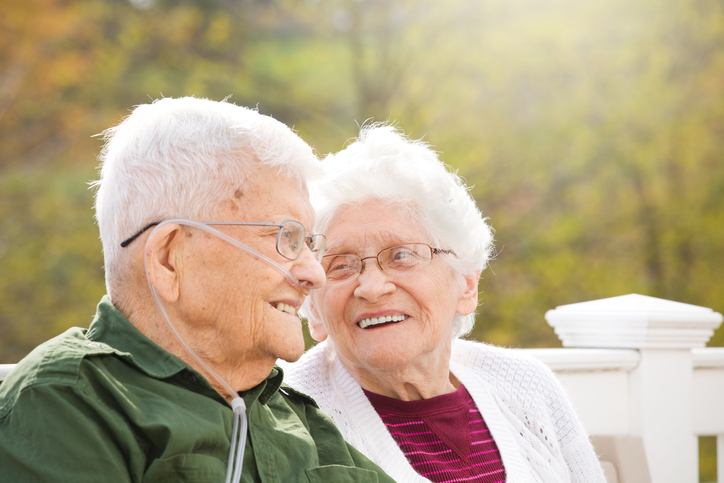
Learn about the four stages of COPD from Live Free Home Health Care.
As many as 11 million men and women in the United States alone are presently diagnosed with COPD (chronic obstructive pulmonary disease), and we at Live Free Home Health Care fully understand the complexities and complications associated with the airflow restrictions – and as a result, the lifestyle restrictions – that seniors with the disease face each day. It’s important for us as caregivers, and for family members who are also providing care, to be aware of what to expect in each stage of this progressive disease, and how to aid those with COPD in effectively managing their condition and living life to their fullest potential.
Providing professional senior care in New Hampton, NH and surrounding areas, we at Live Free Home Health Care have broken down the four stages of COPD below for your understanding, together with the suggestions from the Lung Institute on actions you should take to make certain your senior loved one continues to be as healthy as possible.
Stage 1: Mild COPD
During this phase, it may not even be clear that there’s a problem aside from living with some coughing and mucus, and minimal breathing limitations when performing everyday tasks. Even though the symptoms may appear minor, it’s important for the senior to see the physician as soon as possible, so that if a COPD diagnosis is verified, a treatment plan can be implemented. The physician may prescribe medications as well as lifestyle adjustments – particularly stopping smoking, maintaining a healthy diet plan, and exercising. Alternative treatment solutions, such as acupuncture, chiropractic care, and cellular therapy, might also be considered.
Stage 2: Moderate COPD
In moderate COPD, coughing and mucous are increased, while airflow will become more constricted. Lung capacity at this stage will have fallen to anywhere between 50 and 79 percent, and physical activity will leave the individual feeling breathless. Medications will probably need to be modified in this stage, and pulmonary rehabilitation may also be suggested by the doctor, helping the senior maximize breathing functionality.
Stage 3: Severe COPD
By the time a senior reaches the severe stage of COPD, the condition will have intensified and substantial impairment of lung function is encountered. Physical weakness and breathlessness increase, making it challenging for the individual to continue to be active, and numerous medical appointments may be needed. Further pulmonary screenings will help the physician track the development of the disease and to determine when to add in additional treatment options to improve quality of life, such as oxygen, inhalers, and bronchodilators.
Stage 4: End-Stage COPD
In the end stage of COPD, lung functionality has fallen to 30% or lower, and oxygen therapy will be required. Basic activities of daily living become daunting or impossible to perform without exhaustion and breathlessness. The health care provider will want to keep a close eye on the senior throughout this stage, altering the treatment plan to help the individual maintain the highest possible quality of life. Activities such as tai chi or yoga might be suggested to help the senior remain as active as possible while remaining comfortable.
One of the most effective ways to help seniors with COPD, and the families who care for them, is by working with a professional home care agency, such as Live Free Home Health Care. Providing the expert senior care New Hampton, NH seniors need, we are highly skilled and experienced in helping those with COPD by:
- Planning and preparing nutritious meals according to any dietary restrictions
- Providing safe, accompanied transportation to medical appointments and procedures
- Helping seniors take part in doctor-approved exercise plans
- Maintaining a clean home environment
- Providing warm, caring companionship
- And so much more
Contact us any time at 603-217-0149 to learn more.
